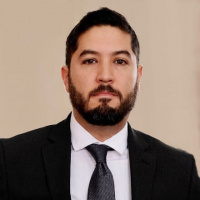Westhoff DUI-DWI Lawyer, Texas
Sponsored Law Firm
-
 x
x

Click For More Info:
-
Law Office of Robert R. Jones III
2411 Emancipation Ave, Suite 202, Houston, TX 77004» view mapCriminal Defense Expert Representation for Reasonable Rates
If you need representation, call me 24/7.
800-883-8760
Not enough matches for Westhoff DUI-DWI lawyer.
Below are all Westhoff Criminal lawyers.
Christopher D. Cavazos
Criminal, DUI-DWI
Our primary goals are to protect your rights and protect your future.
Christopher D. Cavazos is a knowledgeable Criminal Law and DWI attorney who has more than 15 years of experience. Mr. Cavazos previously worked as a c... (more)
FREE CONSULTATION
CONTACTFREE CONSULTATION
CONTACTFREE CONSULTATION
CONTACTAmber Cristina Macias
Insurance, Personal Injury, Juvenile Law, Criminal
Status: In Good Standing Licensed: 8 Years
Luis I. Cuellar
Divorce & Family Law, Criminal, Child Support, DUI-DWI
Status: In Good Standing Licensed: 19 Years
Patti Lea Hutson
Family Law, Divorce & Family Law, Criminal
Status: In Good Standing Licensed: 23 Years
Allison Helen Lanty
Domestic Violence & Neglect, , DUI-DWI, Criminal
Status: In Good Standing Licensed: 34 Years
 Robert Jones San Antonio, TX
Robert Jones San Antonio, TX AboutLaw Office of Robert R. Jones III
AboutLaw Office of Robert R. Jones III Practice AreasSpecializations
Practice AreasSpecializations

